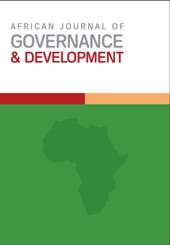Assessing the Effect of Management Education on Vocational Behaviour
Main Article Content
Abstract
This article presents a two-phase longitudinal study on the effect of management education on vocational behaviour, using Holland’s Typology to test Congruence as a moderator. The Phase 1 sample was 360 male and female South African MBA/MBL and Specialised Master’s university students; the Phase 2 sample was 103 students. The study was conducted in Gauteng Province, South Africa, with participants from Johannesburg and Pretoria. A within- and between-subjects design was employed. The vocational behaviour indicators were career decision-making self-efficacy, vocational identity, work identity, career commitment, and vocational interest/personality. Discriminant Function Analysis identified the Enterprising personality type as the best predictor of the Enterprising type and Social type environments in South Africa. Holland’s fourth working assumption was partially supported. Congruence did not predict vocational behaviour, but t-test results established significant within- and between-group differences in vocational behaviour due to Congruence. Incongruence was not always linked to negative outcomes; nor was Congruence always linked to positive outcomes. Management education did not change students’ vocational behaviour.
Article Details

This work is licensed under a Creative Commons Attribution-NonCommercial-NoDerivatives 4.0 International License.
